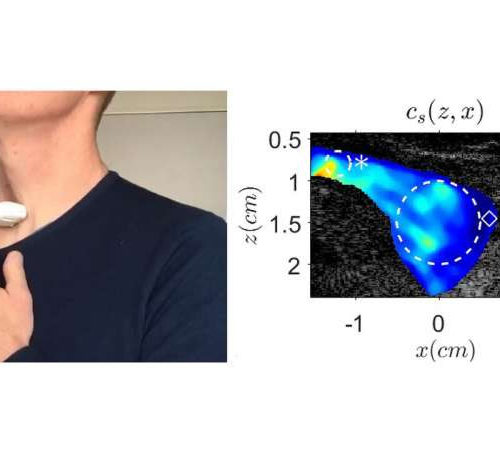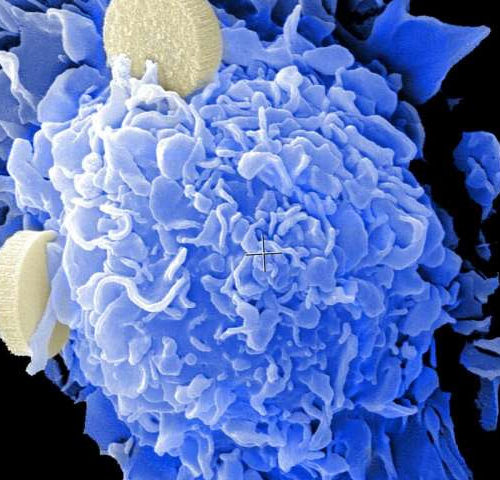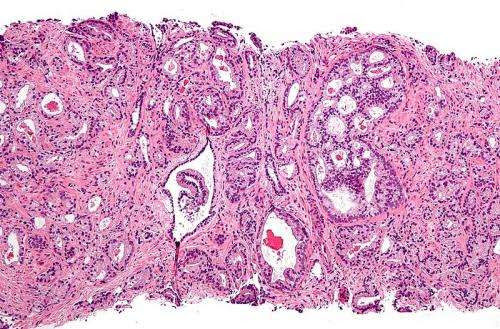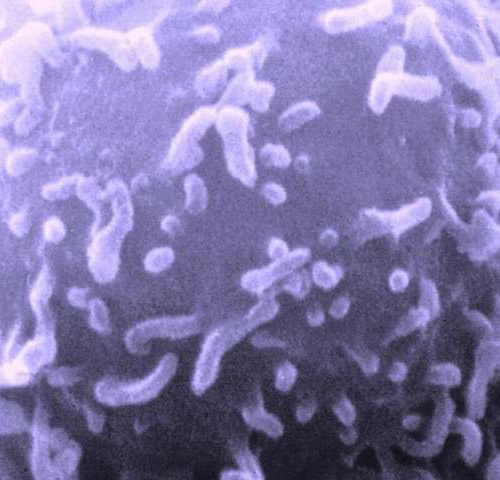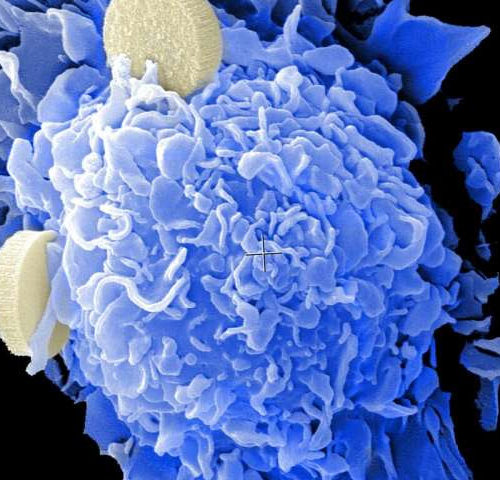INSTITUT PASTEUR Monoclonal antibodies are part of the therapeutic arsenal for eliminating cancer cells. Some make use of the immune system to act and belong to a class of treatment called “immunotherapies.” But how do these antibodies function within the tumor? And how can we hope to improve their efficacy? Using innovative in vivo imaging...
Tag: <span>Tumor</span>
Monitoring stiffness of tissue near patient’s thyroid while they sing can help to determine presence of tumor
by American Institute of Physics When a person sings, the vibrations create waves in the tissue near the vocal tract called shear waves. If a tumor is present in the thyroid, the elasticity of its surrounding tissue increases, stiffening, and causing the shear waves to accelerate. Using ultrasound imaging to measure these waves, researchers can determine...
New connections reveal how cancer evades the immune system
by University of Michigan If cancer is a series of puzzles, a new study pieces together how several of those puzzles connect to form a bigger picture. One major piece is the immune system and the question of why certain immune cells stop doing their job. Another piece involves how histones are altered within immune...
New study describes which cancer patients are more vulnerable to COVID-19
by Sophie Belcher, University of Birmingham A newly published study led by the Universities of Oxford and Birmingham has found that, compared to other cancers, patients with blood cancers are more vulnerable to the effects of the coronavirus pandemic. As access to treatment remains of upmost importance, this information will help clinicians to guide patients...
Nanoparticles show promise in defeating antibiotic-resistant bacteria, U of T researchers find
A new therapy developed by researchers at the University of Toronto may bring us one step closer to effectively killing deadly drug-resistant superbugs. “The threat posed by pathogens that are increasingly becoming resistant to all known antibiotics is an alarming and pressing health care problem,” says Ruby Sullan, assistant professor in the department of physical...
New therapy targets breast cancer metastases in brain
Combination therapy reduces tumor size, dramatically improves survival in mice NORTHWESTERN UNIVERSITY CHICAGO — When breast cancer spreads to the brain, the prognosis is grim. Patients only have about six months to live. Women with HER2-positive breast cancer tend to develop brain metastases in up to 55% of cases. Chemotherapy drugs targeting breast cancer cells...
Exploring connections between ovarian cancer and blood cells
Dr. Abhishek Jain, assistant professor in the Department of Biomedical Engineering and the Department of Medical Physiology in the College of Medicine, collaborated with researchers from the Departments of Gynecologic Oncology and Cancer Biology at MD Anderson Cancer Center to gain a better understanding of the interaction among ovarian cancer tumors, blood vessels and platelets....
PARP inhibitor becomes new treatment option for some men with advanced prostate cancer
by University of Chicago Medical Center Results from an international clinical trial found that men with advanced prostate cancer who have mutated BRCA1/BRCA2 genes can be treated successfully with a targeted therapy known as rucaparib, resulting in recent FDA approval. Prostate cancer is the most common cancer and the second leading cause of cancer death...
Fighting cancer with rejection-resistant, ‘off-the-shelf’ therapeutic T cells
by Ana María Rodríguez, Ph.D., Baylor College of Medicine Scanning electron microscopy image of a human lymphocyte. Credit: National Cancer Institute Personalized cancer treatments are no longer just options of the future. In the past few years, researchers have made significant progress in ‘teaching’ the body’s immune T cells to recognize and kill specific cancer...
A metabolic enzyme as a potential new target for cancer immune therapies
by German Cancer Research Center The metabolic enzyme IL4I1 (Interleukin-4-Induced-1) promotes the spread of tumor cells and suppresses the immune system. This was discovered by scientists at the German Cancer Research Center (DKFZ) and the Berlin Institute of Health (BIH). The enzyme that activates the dioxin receptor is produced in large quantities by tumor cells....

